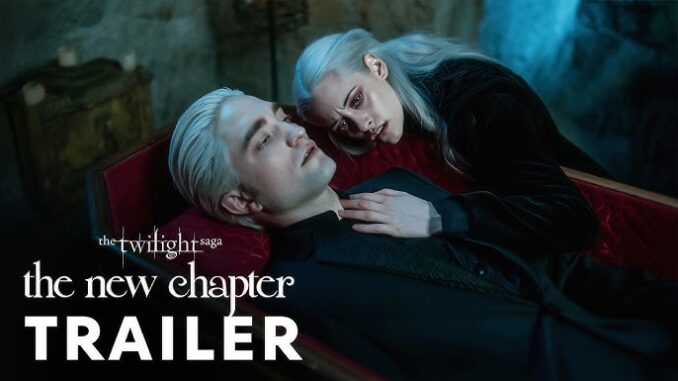
The Underside of Immortality: What Twilight Fanatics Might Have Missed
The Twilight Saga, a shimmering phenomenon of young love, sparkling vampires, and forbidden romance, carved an indelible mark into the pop culture landscape. For its devoted fanbase, the saga wasn’t just a series of books or films; it was a universe, a gospel of undying devotion and fantastical escape. Fans pored over every chapter, every frame, analyzing character motivations, speculating on plot twists, and defending their beloved protagonists with fervent zeal. Yet, even within this monolithic edifice of fandom, there lie subtle cracks, overlooked shadows, and whispered implications that, if truly illuminated, might shock even the most die-hard Twilight fanatic with their unsettling revelations.
One of the most profound missed moments often revolves around the true, unvarnished nature of Edward Cullen himself. While often celebrated as the epitome of the perfect, chivalrous vampire boyfriend, the underlying current of his predatory essence is frequently overshadowed by his romantic gestures. Think back to the early days in “Twilight,” when Edward’s struggle with Bella’s scent is presented as a romantic dilemma, a testament to his immense self-control. But strip away the velvet glove of romance, and what remains is a predator fighting his intrinsic urge to consume. His famous line, “I am the most dangerous creature you’ll ever meet. I’m a predator,” isn’t merely a dramatic declaration; it’s a chillingly accurate self-assessment. Fans swoon over his possessiveness, interpreting it as fierce love. But examine it through a different lens: his ability to break rules, stalk Bella in her sleep, control her choices, and even destroy her vehicle to keep her safe, can be read not just as protectiveness, but as a subtle, pervasive form of control rooted in his primal, dangerous nature. The shock here lies in realizing that the ultimate romantic hero is, at his core, a creature designed to kill, and his love, while genuine, is perpetually tinged with that inherent, dangerous darkness, making their relationship less a fairy tale and more a tightrope walk over an abyss.
Another revelation that might shake the foundational beliefs of the faithful concerns Bella Swan’s journey itself. Often lauded for her unwavering devotion and strength in choosing her path, fans might overlook the profound loss and self-abnegation woven into her transformation. Her desire to become a vampire is presented as the ultimate commitment to Edward, a triumphant embrace of eternal love. But what is truly lost in that pursuit? Her humanity, yes, but also every single human milestone she will never experience. The simple joy of aging alongside her parents, the quiet wisdom of wrinkles, the shared laughter over grey hairs with human friends, the experience of a natural sunrise or the warmth of human skin. Bella actively forsakes all of this, not just for Edward, but for an eternity of stasis. She becomes a vessel, almost empty of her human self, rushing towards an immortality that, while glamorous, is inherently isolating from the vast majority of existence. The missed moment isn’t just her choice, but the profound, almost tragic depth of what she sacrifices – not just her life, but the very essence of human experience – rendering her final form less a joyous ascension and more an existential echo chamber, forever removed from the fleeting beauty of mortal life.
Finally, the pervasive sense of underlying gothic horror and existential dread, often softened by the romance, could be a truly shocking missed moment for fans. The Cullens, for all their wealth and beauty, are perpetually on the run, outsiders in every sense, haunted by their pasts and forever wary of the future. Their immortality, while a superpower, is also a profound curse – an endless repetition of days, the unbearable weight of centuries, the constant fight against their own nature. Jacob Black and his pack, tied to their ancient land and traditions, carry the burden of their primal instincts and the responsibility of protecting their human kin. Forks itself, perpetually cloudy and isolated, serves as a character, a liminal space where the ordinary meets the extraordinary, but always with a hint of melancholy. The battles, the ancient grudges, the very idea of a world teeming with hidden monsters and ancient laws, lend a pervasive sense of danger that goes beyond mere plot conflict. It suggests a universe where power is always balanced by immense sacrifice, where love is intertwined with eternal peril, and where the most beautiful beings often harbor the greatest suffering. The shock comes from realizing that beneath the sparkling veneer, Twilight is, at its heart, a story of profound alienation, inescapable fate, and the heavy price of forever.
To revisit the Twilight Saga with these “missed moments” in mind is not to diminish its magic, but to enrich it. It transforms a celebrated romance into a complex meditation on identity, sacrifice, and the seductive danger of eternal love. For the true fanatic, it offers a new layer of understanding, a deeper appreciation for the shadows that give definition to the light, and a startling realization that even in the most familiar stories, the most profound truths often lie just beyond the shimmering surface, waiting to be seen.
